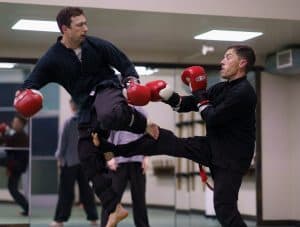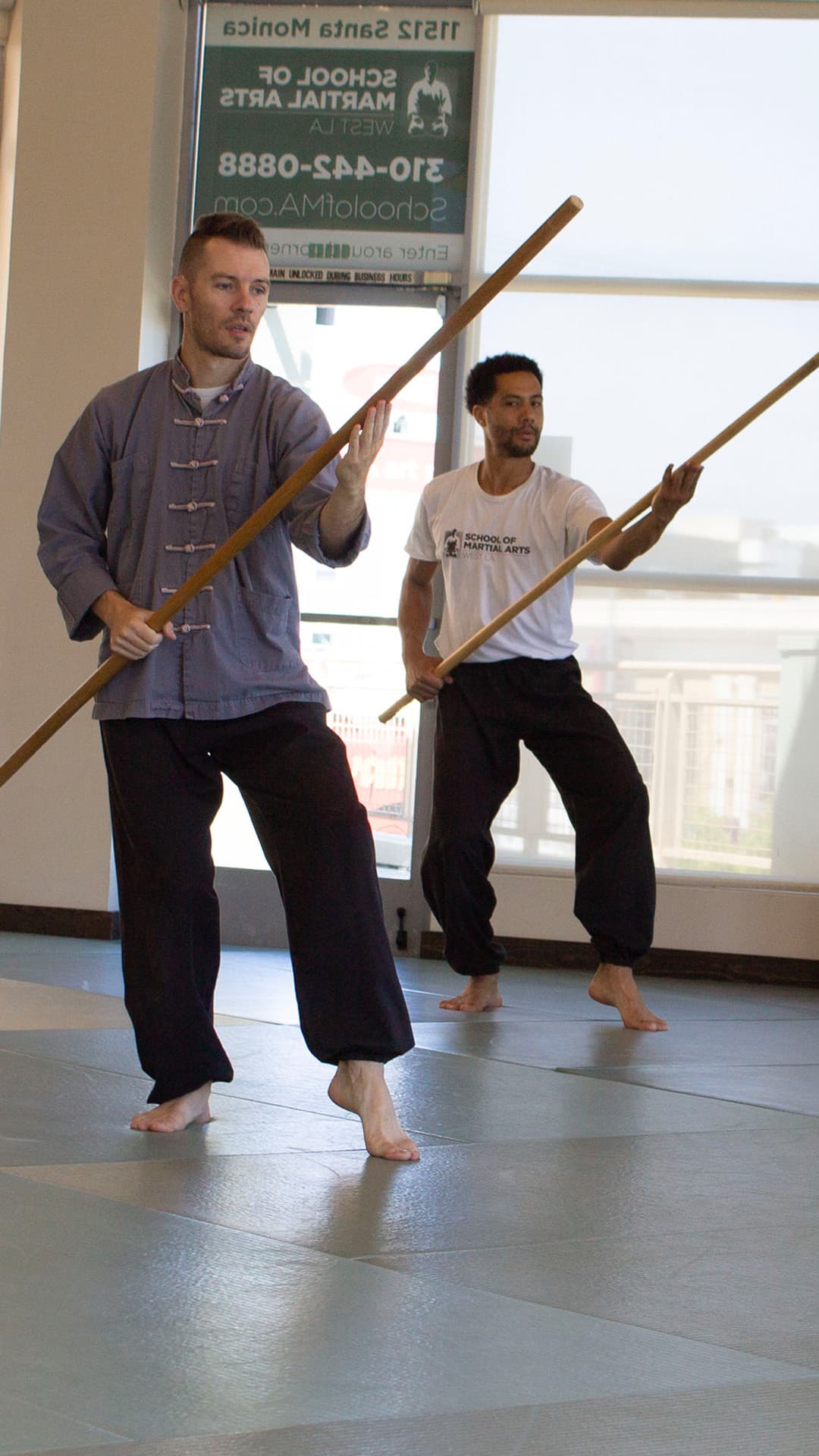 The internal challenge in the dojo this week is to have one difficult conversation that you’ve been putting off. For some of you, you immediately know the conversation you need to have. For others, you may spend a minute thinking. With some light introspection you’ll realize you’ve been avoiding at least one conversation. These conversations are difficult for a reason. As with any challenge, there is wonderful growth that comes along with taking them on.
The internal challenge in the dojo this week is to have one difficult conversation that you’ve been putting off. For some of you, you immediately know the conversation you need to have. For others, you may spend a minute thinking. With some light introspection you’ll realize you’ve been avoiding at least one conversation. These conversations are difficult for a reason. As with any challenge, there is wonderful growth that comes along with taking them on.
Conversations in our practice
I like to describe sparring in Kung Fu, free rolling in Brazilian Jiu Jitsu and push-hands in Tai Chi in a similar way. They are all like conversations. If our practice with a partner feels like one of us is just overwhelming the other, it’s not really a conversation. It’s more like a lecture or perhaps a one-sided argument. Rather than that, we should recognize the level our partner is at and work there, challenging without overwhelming.
Now as we challenge each other, we may still get some kind of emotional response. Perhaps we get hit or pushed a little harder than we feel ready for. We instantly start to push back or shrink from the challenge. This is exactly what these more dynamic drills are for. They bring our ego to the forefront so we can recognize and deal with it. We practice so that we can deal with those difficult feelings and still act the way we want to act. Whether that’s side-stepping the next kick or bowing to our partner with sincere thanks at the end.
Partners not opponents
If we think of practice in this way, it helps us keep a better mindset. It helps us more easily let go of those emotions as we let go of our attachment to “winning”. In difficult conversations, the same is true. If we think of confrontation as something to be avoided (as I very much used to), then every confrontation is a negative experience rather than what it could be: an opportunity to grow and even get closer to the person we are conversing with. I’m not suggesting we go out looking for fights, just that we don’t need to fear them. We also don’t need to win every argument or conversation. A much better way is to truly listen to each other and leave with a better understanding. Just like when we learn from our partners in the dojo.
When I was younger I struggled with any conversation that had a potential for conflict. This obviously created problems in relationships of all kinds, but even in more mundane interactions with people I wasn’t close with. I wouldn’t return my salad at a restaurant if it had a fly in it because I was worried the waiter would be annoyed with me. That actually happened! Martial arts helps us to understand that these confrontations serve a purpose and they are not to be avoided. When we put off a difficult conversation, it simply adds to our stress. Each day we avoid it we stew in our anxiety knowing something will eventually have to give. That dead fly isn’t going to fly away, after all. In my experience, the best course of action is to have that conversation as soon as possible.
Honesty
Besides truly listening and having the conversation as soon as possible, the last thing I’ve found works the best is to be shamelessly honest. Everyone appreciates honesty, especially when we are honest with ourselves. If I’ve been avoiding this conversation because I’m worried it will make this other person mad at me and I don’t like it when other people are mad at me, I should get that straight before talking to that person. If I come out and say it, “I’m worried this will make you mad at me and I’m not sure I could deal with that,” the other person is more likely to take a breath before jumping to anger. Even if they do get angry, at least you’ve come to the realization that this is something you need to deal with and therefore can grow from.
Indeed many difficult conversations will unavoidably bring strong emotions. If we are ok with that and are ready for that possibility, it will stop things from getting out of hand. I encourage you to have a difficult conversation today! Remember, if you mess up the first one, you can always be honest about what went wrong with yourself and the other person and try again.



